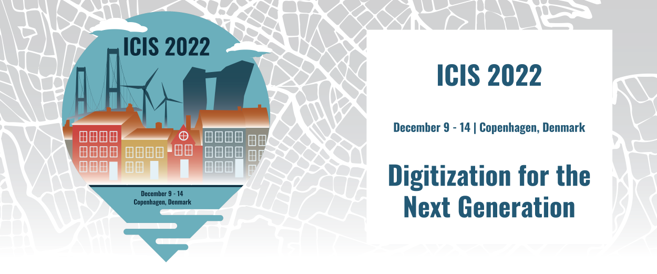The advent of technologies such as mobile apps, blockchain, and the Internet of Things (IoTs) has dramatically altered the manner in which Information Systems (IS) are being conceived, developed, and managed in organizations. Rapid automation of processes through the use of Machine Learning (ML) and Artificial Intelligence (AI) has impacted virtually every facet of IS design, development, and project management. Furthermore, IS Development (ISD) processes increasingly integrate operations with cross-functional software teams (i.e., DevOps) to manage complexity and to respond with agility to changing market conditions. Third, the proliferation of open source tools and the increasing number of outsourcing and crowdsourcing options allow organizations to evolve innovative solutions to complex problems. New software development approaches combined with diverse software platforms and application environments provide the opportunity to broaden the array of approaches to design and development available to IS project managers and to offer the prospect of approaches better fitting with organizational settings, personnel skills, and task demands. Given this complex and dynamic nature of IS projects, many projects continue to run over budget, to extend past schedule, and to deliver less than or different products than anticipated, needed, or preferred. Finally, to respond to the need for realizing the large-scale digital transformation objectives, IT Program Management has emerged as a distinct discipline. The first and foremost strength of program management approaches is its mediating role for keeping the alignment between individual projects goals and strategic goals, which promises that project deliverables contribute to the business strategy. The second strength of program management approaches is its integrating role for dealing with potential conflicts among multiple projects and ensuring these projects to cooperate and collaborate for the strategic goal realizations.
Track Co-Chairs Geneviève Bassellier, Ph.D., McGill University James J. Jiang, Ph.D., National Taiwan University Thomas Kude, Ph.D., ESSEC Business SchoolSubscribe to RSS Feed (Opens in New Window)
| 2022 | ||
| Monday, December 12th | ||
| 12:00 AM |
Michael Weber, Technical University of Munich 12:00 AM |
|
|---|---|---|
| 12:00 AM |
Yogita Thakral, University of Oslo 12:00 AM |
|
| 12:00 AM |
Bruno Sanches, Fundação Getulio Vargas 12:00 AM |
|
| 12:00 AM |
Digital Infrastructure Evolution: A Digital Trace Data Study Katharina Drechsler, University of Liechtenstein 12:00 AM |
|
| 12:00 AM |
Oliver Krancher, IT University of Copenhagen 12:00 AM |
|
| 12:00 AM |
How to Turn Around: Escalation of Commitment in the Context of ISD Project Distress Carolin Marx, Hasso Plattner Institut, University of Potsdam 12:00 AM |
|
| 12:00 AM |
Phantoms of Innovation: Disciplined Simulation for Ex-ante Evaluation in Design Science Research Philipp Matter, Zurich University of Applied Sciences 12:00 AM |
|
| 12:00 AM |
Project Archetypes: A Blessing and a Curse for AI Development Mateusz Dolata, University of Zurich 12:00 AM |
|
| 12:00 AM |
The Influence of Dependency Networks on Developer Attraction in Open Source Software Ecosystems Mario Müller, University of Cologne 12:00 AM |
|
| 12:00 AM |
Philip Emmerich, Technische Universität Berlin 12:00 AM |
|
| 12:00 AM |
Christin Karrenbauer, Information Systems Institute, Leibniz University Hanover 12:00 AM |
|


